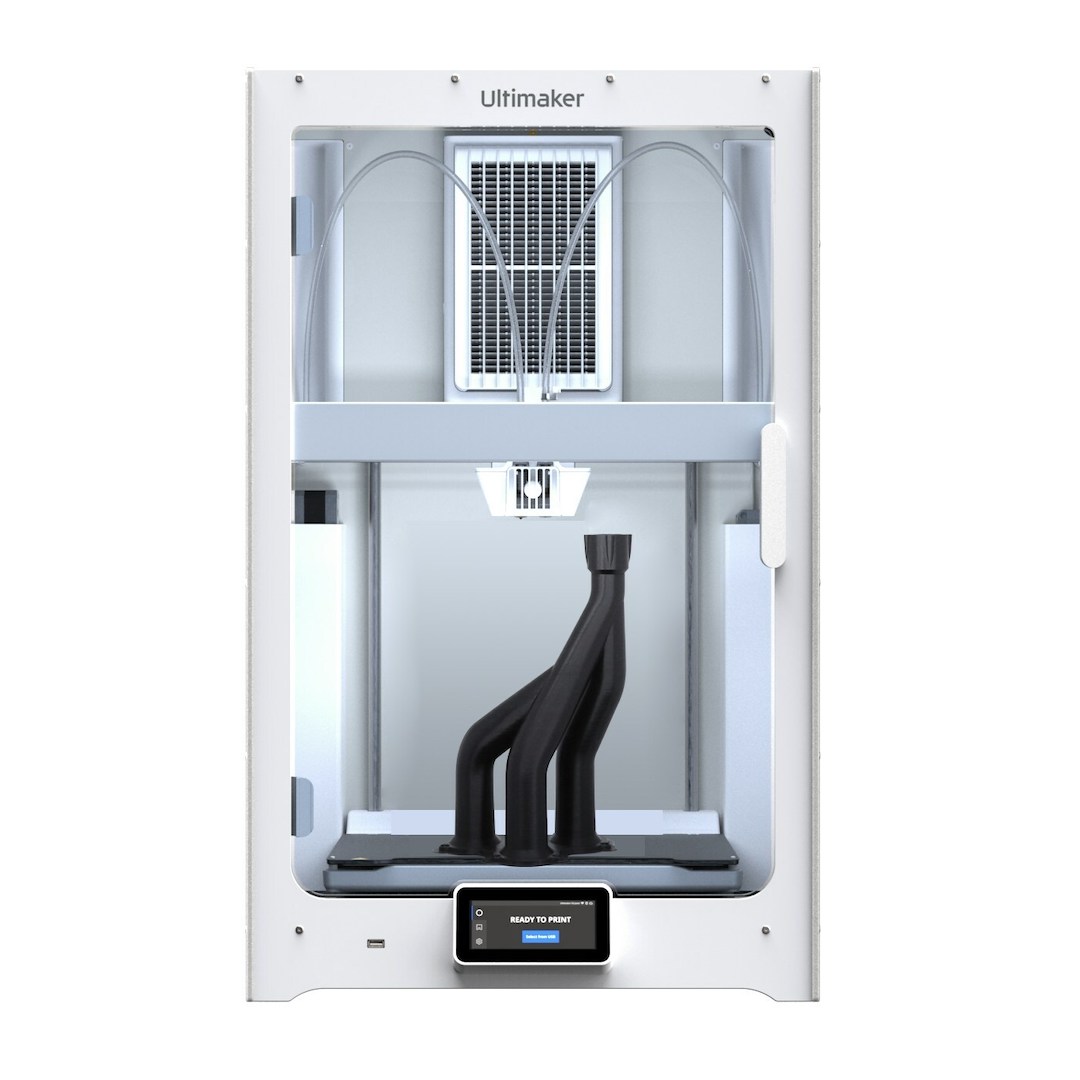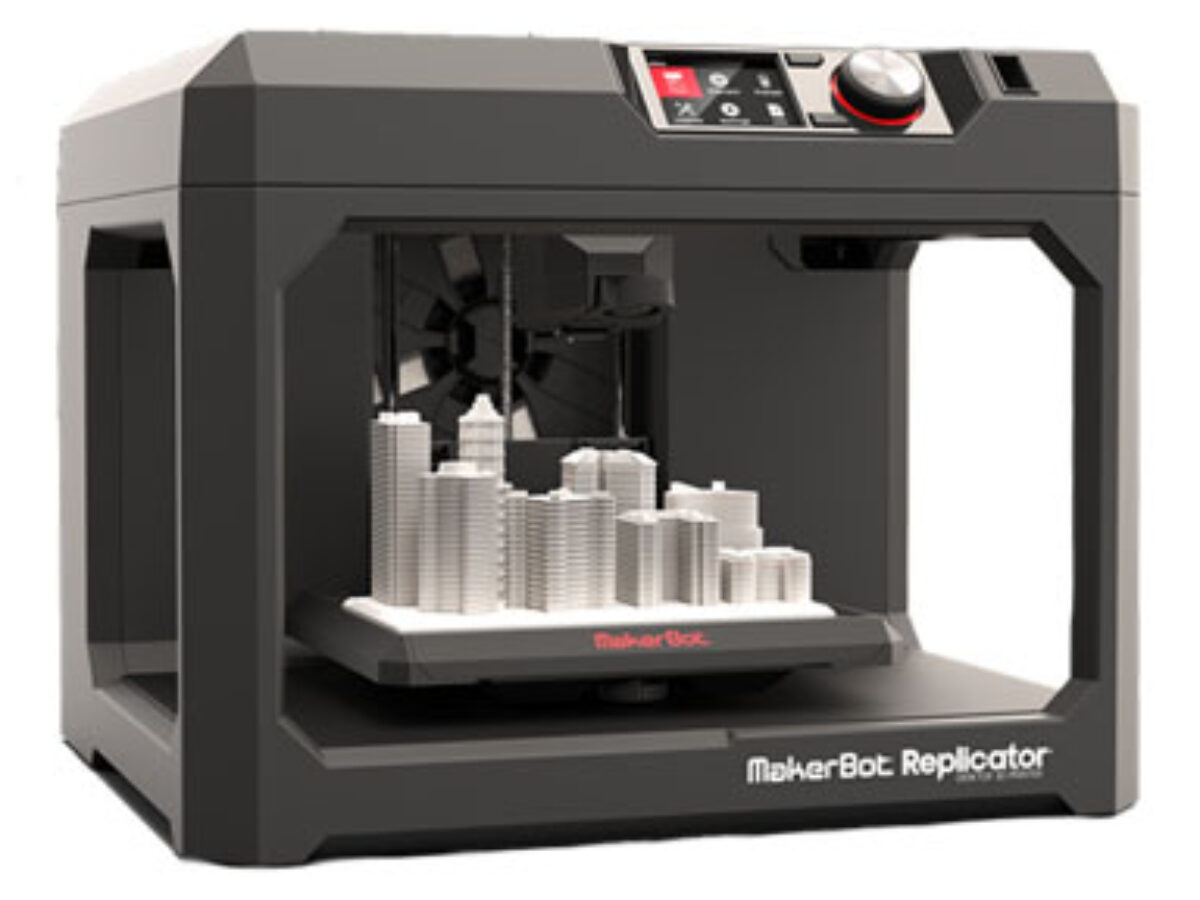Compare S7 vs Replicator Plus
Comparison between the best 3D printers
Choose the best 3D printer at the best price. The cheapest 3D printers are here.
Buy a 3D printer here with 3D Fila.
 |
 |
|
| Model | S7 |
Replicator Plus |
| Printing Material | Filament | Filament |
| Buy Filament for Ultimaker S7 | Buy Filament forMakerbot Replicator Plus | |
| Estimated price | $8300,00 | $2099,00 |
| Manufacturer | Ultimaker | Makerbot |
| Release Year | 2022 | 2016 |
| Print Volume [mm] | 240x330x300 | 165x295x195 |
| Printer Size [mm] | 585x495x800 | 410x528x441 |
| Weight [kg] | 29 | 18,3 |
| Power Loss Recovery | YES | YES |
| Enclosed printer | YES | NO |
| Bed Leveling | Automatic | Automatic |
| Filament End Sensor | YES | YES |
| Bed type | Heated | |
| Power supply system | Bowden | Bowden |
| Standard nozzle | 0,4 | 0,4 |
| Maximum Nozzle Temperature [°C] | 280 | 230 |
| Maximum Bed Temperature [°C] | 120 | |
| Maximum printing speed [mm/s] | 180 | 150 |
| Filament holder | YES | YES |
| Camera for supervision | YES | YES |
| Recommended filaments | PLA, ABS, PETG, PC, Nylon, Tritan, PP | PLA |
| Recommended slicers | Cura | MakerBot Print Software |
| Maximum Resolution [mm] | 0,1 | 0,1 |
| Processor | ||
| Display | Display touchscreen 4,7'' | |
| Power Supply | 500 W | 110/220V / 240W |
| Connectivity | USB / Wi-Fi | USB / Wi-Fi |
| Operating systems | Windows, Mac, Linux | Windows, Mac, Linux |
| Date of registration in the system | 2023-01-28 | 2022-11-15 |
| Release date | 2022 | 2016 |
| Extra features | The UltiMaker S7 printer features a series of technological innovations to enhance 3D printing. It incorporates a flexible, magnetic build plate with PEI coating, promoting better adhesion and easier part removal. Its new inductive sensor significantly improves bed leveling, ensuring perpendicular and accurate prints. In addition, the S7 has a higher quality camera for remote monitoring, an integrated air filter, and uses a unique glass door to maintain a constant temperature in the print chamber. The machine is also compatible with the expansion kit for metal printing. | The Replicator Plus printer is easy to use and has very good print quality. Its software is user-friendly and powerful, with USB, Ethernet, Wi-Fi and support for printing via pen drive. With a safe design for an open frame printer, it is relatively quiet. The Smart Extruder+ detects filament end and pauses printing automatically, in addition to notifying via apps. It has a large print volume, with a non-heated and coated print bed for easy removal of parts. It also has a webcam for remote monitoring of prints. |
| Support for multiple colors and materials (AMS and CFS) | NO | NO |
Notes * |
||
| Cost-benefit | 1 / 10 | 6 / 10 |
| Hardware | 3.6 / 10 | 2.5 / 10 |
| Tela | . | . |
| Print volume | 4 / 10 | 3 / 10 |
| Performance | 1 / 10 | 1 / 10 |
Conclusion |
| In comparing the Ultimaker S7 and the MakerBot Replicator Plus, several key aspects highlight their respective strengths and weaknesses, ultimately guiding potential buyers in their decision-making process. The Ultimaker S7 stands out with its advanced features and higher-quality build, making it suitable for professional environments where precision and material versatility are paramount. With a larger print volume, a heated and magnetically removable build plate, and an array of compatible materials, it offers users the ability to tackle various printing projects effectively. Additionally, the S7's innovations such as an integrated air filter and a superior camera enhance user experience by promoting efficient printing and monitoring capabilities. In contrast, the MakerBot Replicator Plus excels in accessibility and ease of use, providing good print quality at a significantly lower price point. While it lacks some of the advanced features found in the S7, such as an enclosed build chamber and a heated bed, it remains a solid choice for hobbyists and educational settings looking for a reliable, user-friendly printer. Its smart features and intuitive software make it manageable for users of all skill levels. Considering cost, the Ultimaker S7 is positioned as a premium option with advanced capabilities that justify its higher price, while the MakerBot Replicator Plus offers a more budget-friendly alternative that still meets basic printing needs effectively. Therefore, the decision between the two should align with the user's specific requirements, whether they prioritize high-end features and material compatibility, or seek affordability and ease of use. Ultimately, each printer serves distinct purposes in the 3D printing landscape, catering to different audiences and applications. |

